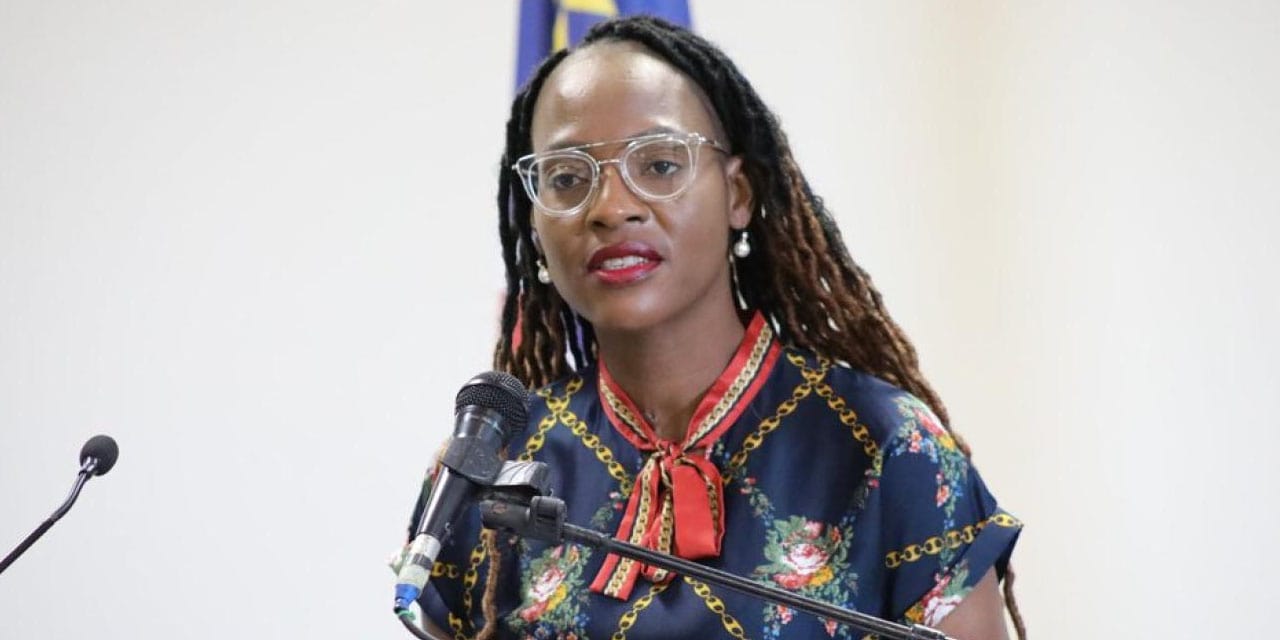Niël Terblanché
The Deputy Minister of Environment, Forestry and Tourism, Heather Sibungo says women are major global actors in reducing and reversing land degradation. She also noted that despite women making up half of the global population, they have unequal and limited access to and control over land in most countries while being regarded as the vital element in the combat against desertification.
Sibungo was speaking at the commemoration of Desertification and Drought Day.
“We cannot achieve land degradation neutrality without gender equality, and we cannot exclude half of the world’s population from land management decisions because of their gender,” Sibungo said.
The main objective for commemorating the day is to raise awareness of the disproportionate impact of desertification, land degradation, and drought on women and girls and the barriers they face in decision-making on land issues and, highlight women’s contributions to sustainable land management and broader SDGs, mobilize global support to advance land rights for women and girls around the world and share the best practices for reducing desertification and land degradation.
This year’s commemoration was under the theme ‘Her Land. Her Rights’.
According to Sibungo, land degradation is caused by a multitude of factors such as extreme weather conditions, human activities such as over-cultivation, overgrazing, and forest conversion and fragmentation that puts pressure on arable and pasture land consequently leading to the degradation of soil quality.
“Land degradation inadvertently affects the production of ecosystem services that sustain us through food production and to a greater extent, our livelihoods,” she said.
Desertification’s effects on human health range from higher threats of malnutrition from reduced food and water supplies; to more water- and food-borne diseases as a result of poor hygiene, and a lack of clean water; to respiratory anomalies caused by atmospheric dust from wind erosion.
“When women are empowered, entire families and communitiesbenefit. In addition to being on the frontlines of land degradation and climate change impacts, women can also be at the forefront of global efforts to restore the land back to health and boost drought resilience. Gender-responsive land restoration is a pathway to reduce poverty, hunger, and malnutrition,” she argued.
The deputy Minister said that an investment in women’s equal access to land and associated assets is a direct investment in their future and the future of humanity.
“Securing women’s land rights can help advance global gender equality and land restoration goals, and contribute to the achievement of broader Sustainable Development Goals,” she said.
According to Sibungo, Namibia has shown its commitment to addressing desertification and land degradation by establishing a Sustainable Land Management Steering Committee to identify land degradation neutrality targets and hotspots.
“I am pleased to inform you that we managed to complete a Land Degradation Neutrality assessment for two of our land degradation hotspots, the Otjozondjupa and Omusati regions. We are busy undertaking the same assessment for the Kunene, Oshana, Ohangwena, Zambezi and Kavango West regions,” she indicated.
Sibungo said that Namibia has agreed to be part of the Great Green Wall and African Forest Landscape Restoration (AFR100) initiative that strives to restore degraded lands in southern Africa. The Great Green Wall Initiative is developing a National Action Plan for guiding the restoration process in the country and combating desertification, drought, and land degradation.
Namibia, under the Paris Agreement, developed the Nationally Determined Contribution for Carbon emission reduction which involves planting trees and restoring degraded ecosystems.
“These initiatives will offer us opportunities to access much-needed financial resources to implement projects that lead to improved land use and management, sustainable agro-forestry and ecosystem conservation and restoration of degraded lands to enhance tourism development, recovery of wildlife, increase household food productivity and grazing, water security and build community resilience against drought as well as the reduction in carbon emissions,” she said.
According to Sibungo, the ministry through its Directorate of Forestry has established nurseries across the country that are propagating endemic seedlings which are then donated to communities to plant for fruit and shade.
“As a result, the majority of Namibian women are involved in fruit tree planting and nursery business to generate income for their families,” she said.
The deputy minister was of the opinion that gender equality is the key to delivering sustainable, broad-minded, and meaningful actions to avoid, reduce and reverse land degradation.
She added that Namibia has an excellent track record of placing gender equality firmly at the core of its development agenda, especially by prioritizing the education of the girl child and promoting and protecting women’s land rights, and viewing women as a vital catalyst of our country’s progress.
Gender-responsive land restoration is a pathway to reduce poverty, hunger, malnutrition, climate change, biodiversity loss, and land degradation.
“Investing in women’s equal access to land and associated assets is a direct investment in their future and the future of our country. Securing women’s land rights can help advance gender equality and land restoration goals, and contribute to Namibia’s achievement of Sustainable Development Goals,” she concluded.




